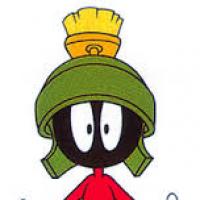Ujumbe: 22
Lugha: English
Vestitor (Wasifu wa mtumiaji) 27 Agosti 2015 11:03:19 alasiri
I ask this because my girlfriend always puts her first language, Frisian, on her CV, but it isn't looked at as a worthwhile language in terms of "marketable" skills, despite being older and the source of both Dutch and English (though most people mistakenly tend to think it is a dialect).
How would you place it? I mentioned this to someone a few weeks ago and they remarked that it ought to be placed in the 'hobbies' section of a CV (assuming you have one) since it is not a proper language. That's the view of at least one non-Esperantist it seems.
erinja (Wasifu wa mtumiaji) 27 Agosti 2015 11:06:08 alasiri
It has been an interesting conversation point at interviews. I have no idea if it makes me look crazy or to be more memorable than other applicants but at any rate it's there and jobs that I apply to aren't really looking for foreign language skills regardless.
jdawdy (Wasifu wa mtumiaji) 27 Agosti 2015 11:21:40 alasiri
Either they are not going to know what it is, and ignore it to not look stupid, or they will ask you about it and that will make you "stick" in their mind, or they will see it and think that you might be a pretty sharp guy for knowing a "foreign" language fluently. The least likely scenario is that they go "Esperanto? What a loser". And if, by some remote chance whoever is interviewing you is also an Esperantist...your chances go way up. Which is why I always list as many interest/hobbies as I can at the end of my CV: more than one person has gotten a job just because they and the interviewer both had an interest in golf/horses/poker/skiing/etc etc.
Vestitor:I wondered if any speakers here put Esperanto on their CV along with any other languages spoken?
I ask this because my girlfriend always puts her first language, Frisian, on her CV, but it isn't looked at as a worthwhile language in terms of "marketable" skills, despite being older and the source of both Dutch and English (though most people mistakenly tend to think it is a dialect).
How would you place it? I mentioned this to someone a few weeks ago and they remarked that it ought to be placed in the 'hobbies' section of a CV (assuming you have one) since it is not a proper language. That's the view of at least one non-Esperantist it seems.
Rajzino (Wasifu wa mtumiaji) 27 Agosti 2015 11:53:19 alasiri
Vestitor: Frisian (...) being older and the source of both Dutch and English (though most people mistakenly tend to think it is a dialect).As a proud linguistics nerd I feel required to say that that's not really accurate. Here is the family tree of the surviving West Germanic languages: (link)
As you can see English and Frisian are indeed fairly closely related (one could say Frisian is more or less what English would sound like if the Anglo-Saxons never left the European main land), but Dutch is in an entirely different branch of the family. Dutch and Frisian just sound so similar because the two have been living right next to each other and influencing each other for over 2 millennia, while we were largely separated from English since the early middle ages.
_____________________________
But back on topic, I don't really have an up to date resume, nor is my Esperanto at this point good enough that I would add it. But once I come close to fluency, I would definitely add it, yes. Chances are adding it or not won't matter a lot, but as the others pointed out, I think there is a higher chance it helps you than that it hurts you.
And I would think more people would be impressed if you acquired fluency of a language than when it is a native language. Investing the time and effort to learn any foreign language to the point of fluency speaks of character and an international mindset. I would think.
rikforto (Wasifu wa mtumiaji) 27 Agosti 2015 11:58:41 alasiri
As to whether or not it'll make the cut for a final draft of a resume I turn in? Will depend on a lot.
Vestitor (Wasifu wa mtumiaji) 28 Agosti 2015 12:06:10 asubuhi
Rajzino:Aye, I stand corrected. It's clear West Fries is different from the older variety and that it influences, and has been influenced by, Dutch. I amble through it when I'm at my girlfriend's mother's house and it's amazing how you can pick it up large parts of it through careful listening in such a setting.
As you can see English and Frisian are indeed fairly closely related (one could say Frisian is more or less what English would sound like if the Anglo-Saxons never left the European main land), but Dutch is in an entirely different branch of the family. Dutch and Frisian just sound so similar because the two have been living right next to each other and influencing each other for over 2 millennia, while we were largely separated from English since the early middle ages.
At some point I'm going to add Esperanto to my CV, it can't do any harm.
Tempodivalse (Wasifu wa mtumiaji) 28 Agosti 2015 12:11:55 asubuhi
When I was a subject for a linguistics experiment recently, I was asked for the languages I spoke, and I conveniently omitted Esperanto - decided it was not worth the snickering that it would elicit from the experimenters.
vejktoro (Wasifu wa mtumiaji) 28 Agosti 2015 4:29:08 asubuhi
Tempodivalse:It's on my CV - most people don't seem to notice it particularly, though.One of my my (part time) peer groups happens to be very well respected published linguists: students of Noam as a matter of fact. They do not poo poo Esperanto as many feel they do, they merely wonder how an artificial language can provide data relative to their research. They often feel the same towards creoles and choose to place their energy elsewhere. I have had some success arguing how using data from Esperanto, especially from denaska speakers could shed light in certain areas. Just saying, an Esperantist need not feel him or herself snickerable amongst experimenters when Eo is in and of itself an experiment.
When I was a subject for a linguistics experiment recently, I was asked for the languages I spoke, and I conveniently omitted Esperanto - decided it was not worth the snickering that it would elicit from the experimenters.
If I was applying to work at a gas station, I might not bother.
Tempodivalse (Wasifu wa mtumiaji) 28 Agosti 2015 5:16:10 asubuhi
I suppose some non-Esperantists associate speaking Esperanto with certain political and cultural beliefs. They don't seem aware of the vast diversity among Esperantophones - speaking Esperanto is actually a rather poor predictor of political/social views.
Esperanto probably fails various technical linguistic criteria for what constitutes a "language". Given Esperanto's anomalous history, this doesn't surprise me - though I would maintain that, from a functional/practical perspective (which is the only perspective I concern myself with), there is no real underlying difference between Esperanto and (say) Swahili.
Bemused (Wasifu wa mtumiaji) 28 Agosti 2015 6:07:53 asubuhi
Rajzino:Fascinating.Vestitor: Frisian (...) being older and the source of both Dutch and English (though most people mistakenly tend to think it is a dialect).As a proud linguistics nerd I feel required to say that that's not really accurate. Here is the family tree of the surviving West Germanic languages: (link)
As you can see English and Frisian are indeed fairly closely related (one could say Frisian is more or less what English would sound like if the Anglo-Saxons never left the European main land), but Dutch is in an entirely different branch of the family. Dutch and Frisian just sound so similar because the two have been living right next to each other and influencing each other for over 2 millennia, while we were largely separated from English since the early middle ages.
_____________________________
So which branch of Frisian would be the least contaminated by other languages, and the closest to the language spoken in Britian prior to the arrival of Anglo/Saxons ?






